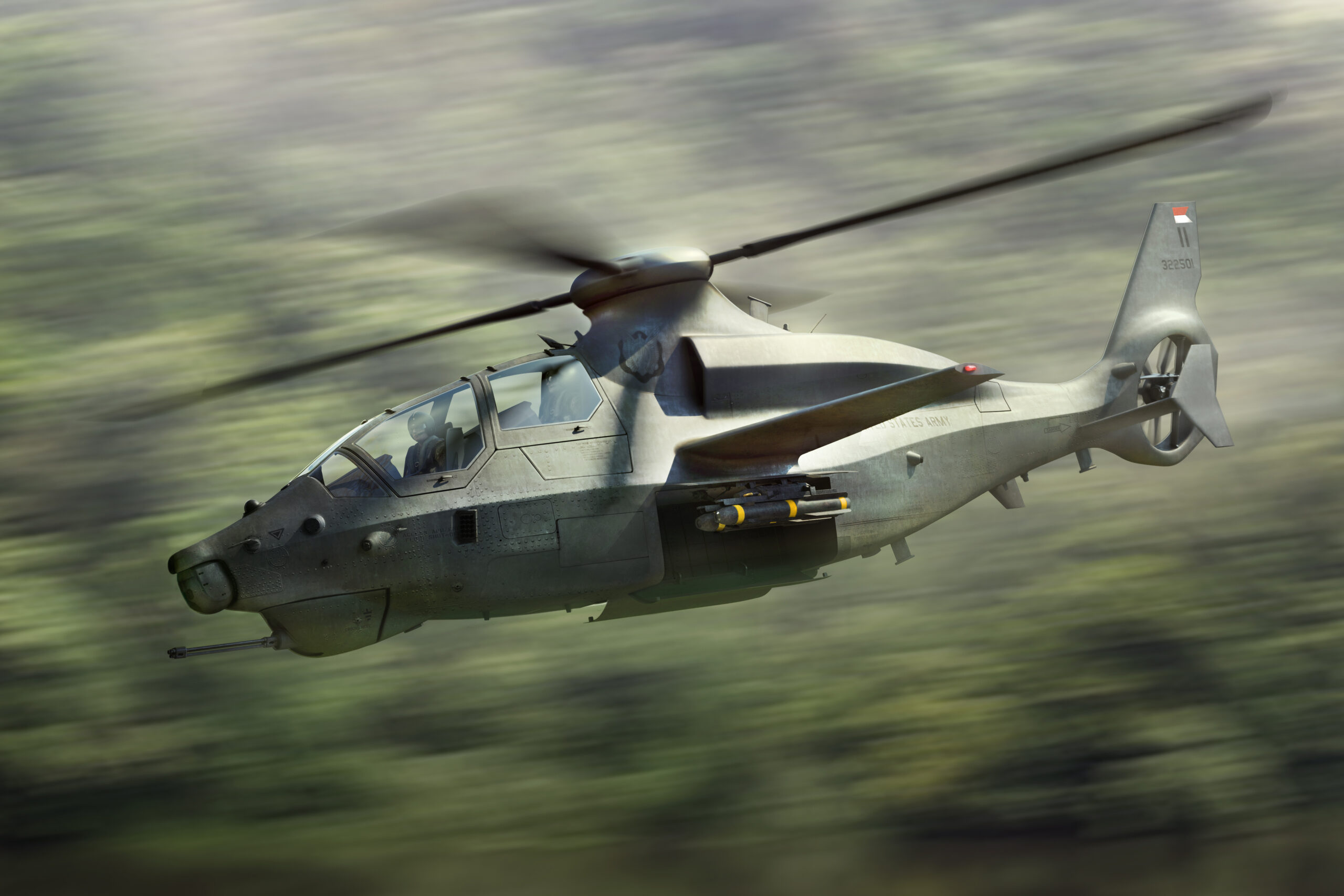Fort Worth, Texas (October 2, 2019) – Bell Textron Inc., a Textron Inc. (NYSE: TXT) company, has announced a new rotorcraft, Bell 360 Invictus, as the company’s entrant for the U.S. Army’s Future Attack Reconnaissance Aircraft (FARA) Competitive Prototype program. Bell’s innovative approach to designing the Bell 360 Invictus combines proven low-risk technologies with advanced processes to deliver soldiers an affordable, agile and lethal solution to win on the modern battlefield. The Bell 360 Invictus meets or exceeds all requirements as laid out under the FARA contract.
“The Bell 360 will deliver advanced battlefield situational awareness, as well as lethal options, in support of the maneuver force at an affordable cost” said Vince Tobin, executive vice president of Military Business at Bell. “The multi-domain fight will be complex, and our team is delivering a highly capable, low-risk solution to confidently meet operational requirements with a sustainable fleet.”
The Bell 360 Invictus’ design emphasizes exceptional performance using proven technologies to fulfill the Army’s FARA requirements at an affordable cost and on schedule. One example is the Invictus’ rotor system. This design is based on Bell’s 525 Relentless rotor system which has been tested and proven at speeds in excess of 200 Knots True Air Speed (KTAS). By incorporating proven designs and the best available technologies from commercial and military programs, Bell delivers a low-risk path to a FARA program of record.

This advanced aircraft will have a transformative impact through next-generation flight performance, increased safety and greater operational readiness—all to deliver decisive capabilities.Some of the key 360 Invictus features include:
- Lift-sharing wing to reduce rotor lift demand in forward flight, enabling high-speed maneuverability
- Supplemental Power Unit increases performance during high power demands
- Robust articulated main rotor with high flapping capability enabling high speed flight
- Fly-by-wire flight control system—synthesizes technologies, reduces pilot workload and provides a path to autonomous flight
- Speed: >185 KTAS
- Combat radius: 135nm with >90 minutes of time on station
- Achieves 4k/95F Hover Out of Ground Effect (HOGE)
- Armed with a 20 mm cannon, integrated munitions launcher with ability to integrate air-launched effects, and future weapons, as well as current inventory of munitions
- Provisioned for enhanced situational awareness and sensor technologies
- Modular Open Systems Approach (MOSA) enabled by a Digital Backbone from Collins Aerospace
- Robust design integrating lifecycle supportability processes early to ensure high OPTEMPO availability in multi-domain operations
- Design-as-built manufacturing model and digital thread enabled tools to enhance affordability, reliability, and training throughout the lifecycle of the aircraft
“Bell is committed to providing the U.S. Army with the most affordable, most sustainable, least complex, and lowest risk solution among the potential FARA configurations, while meeting all requirements,” said Keith Flail, vice president of Advanced Vertical Lift Systems at Bell. “360 Invictus is an exciting opportunity for us to continue our support of Army modernization. This is the next solution to ensure soldiers have the best equipment available for the multi-domain fight.”
Bell has decades of experience providing attack and reconnaissance aircraft to the warfighter, such as the Kiowa Warrior which delivered high reliability and availability through more than 850,000 flight hours. The Bell 360 Invictus design builds from that legacy, Bell’s commercial innovations, and from the success in the development and manufacturing capabilities required for Future Vertical Lift (FVL) as part of the Joint Multi-Role Technology Demonstration (JMR TD) over the past six years.















